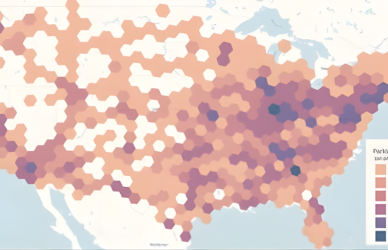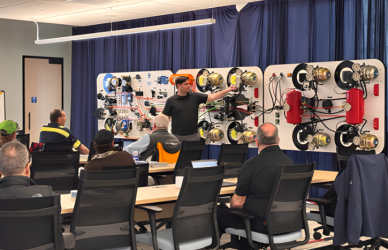Embarking on a career as a truck driver offers a myriad of opportunities, including driving in the specialized field of livestock hauling. In the United States, approximately 250,000 drivers are engaged in the task of transporting livestock, making it a distinctive and rewarding career choice. While it may not be suited for everyone, those with the right blend of patience, a strong constitution, and a willingness to get their hands dirty can excel in this field. Even drivers without prior livestock experience can thrive when armed with the necessary knowledge and determination.
In this article, we will explore three crucial aspects to consider when delving into livestock hauling, shedding light on the diverse types of livestock, the significance of animal care, and the financial incentives that come with this specialty.
Different Types of Livestock
Livestock hauling encompasses a broad spectrum of animal cargo, extending beyond the iconic image of cattle. While cattle indeed make up a substantial portion of this industry, there is a rich variety of animals to transport. From chickens and pigs to goats and sheep, the diversity of livestock demands a nuanced understanding of each species. As a dedicated truck driver, you can pursue specialized training to handle high-value livestock with expertise. Expanding your knowledge to encompass different types of livestock opens doors to a wider range of opportunities and contributes to the welfare of the animals in your care.
Animal Care
At the heart of livestock hauling lies a profound commitment to the welfare of the animals entrusted to you. Effective animal care is paramount, and it hinges on your ability to comprehend the unique needs and behaviors of the species you transport. Patience is an essential virtue, as livestock drivers must ensure the comfort and safety of their charges throughout the journey. Defensive driving practices come into play, reducing the chances of stress-related incidents or accidents. Beyond the financial rewards, the satisfaction of knowing you’ve safeguarded the well-being of living creatures can be very rewarding for some.
Higher Pay and Specialization
Livestock haulers are rewarded for their specialized skills and the extra responsibilities they shoulder. Their unique role as specialty haulers commands a higher rate for tasks such as loading and unloading animals. This increased pay reflects the additional certifications and qualifications that livestock drivers must maintain to mitigate the inherent risks associated with transporting living cargo. These risks range from potential escapes and injuries to the possibility of deck collapses. Furthermore, the choice of a suitable trailer is pivotal, as different animals require distinct accommodations.
Biosecurity and Cleanliness
An often overlooked but crucial aspect of livestock hauling is biosecurity. Ensuring the cleanliness and hygiene of your livestock trailer after each load is essential to prevent the transmission of diseases or infections among animals. Common transmission sources include feces, blood, urine, feed and water containers, insects, parasites, and even live bacteria or viruses on surfaces. Livestock haulers must remain vigilant, recognizing the transmission risks from one delivery site to another and taking meticulous steps to protect the health of the animals in their care.
Regulations and Licensing
Livestock hauling is subject to a complex web of regulations and licensing requirements. These rules can vary not only from state to state but also depending on the type of livestock you’re transporting. Understanding these regulations is paramount to avoiding legal issues and fines. Livestock drivers should be prepared to obtain the necessary permits and licenses, which often involve passing examinations and meeting specific criteria. Staying informed and compliant with these legal aspects of the job is an integral part of being a responsible and professional livestock hauler.
Loading and Unloading Procedures
Proper loading and unloading procedures are critical to the welfare of the animals. This entails not only ensuring that animals are safely secured in the trailer but also handling them gently and calmly. Rushed or rough handling can cause undue stress and harm to the animals, affecting their health and the quality of the livestock upon arrival. Livestock drivers should invest time in learning these procedures and continually refine their skills to minimize the potential for injuries and stress during transportation.
Emergency Preparedness
Emergencies can occur at any time during a livestock haul, and preparedness is key to mitigating their impact. Livestock drivers should be equipped with knowledge and resources to address various scenarios, from accidents to adverse weather conditions. This includes having a plan for providing immediate care to injured animals and knowing how to access veterinary services in case of illness or injury. Being well-prepared can make the difference between a manageable situation and a crisis on the road.
Health and Welfare Certification:
Many livestock haulers opt to obtain certifications related to animal health and welfare. These certifications demonstrate a commitment to upholding the highest standards of care and ethics in the industry. Becoming certified can not only enhance your professional reputation but also open doors to specialized opportunities and higher-paying jobs. Consider seeking out relevant certification programs to distinguish yourself in the field of livestock hauling.
Route Planning
Careful route planning is essential to ensure the well-being of the animals during transit. Livestock drivers should select routes that offer smooth roads and minimize abrupt stops or turns. Additionally, they should consider factors like temperature and humidity when planning trips, as extreme weather conditions can pose risks to the animals’ health. Prioritizing thoughtful route planning contributes to safer and less stressful journeys for the livestock in your care.
Ethical Considerations
Recognizing the ethical dimension of livestock hauling is fundamental. Livestock drivers have a moral responsibility to ensure the humane treatment of animals throughout the transportation process. This includes providing adequate space, ventilation, and care to minimize stress and discomfort. Being ethically mindful not only aligns with industry standards but also reflects positively on your character and reputation as a conscientious livestock hauler.
Hauling livestock can be a rewarding career path within the trucking industry. Whether you’re drawn to the diverse array of animals or the prospect of higher pay, understanding the nuances of this specialty is essential for success. It’s a profession that not only offers financial rewards but also the satisfaction of knowing you play a pivotal role in safeguarding the well-being of the living beings you transport, ensuring their safe and comfortable journey from one location to another.











